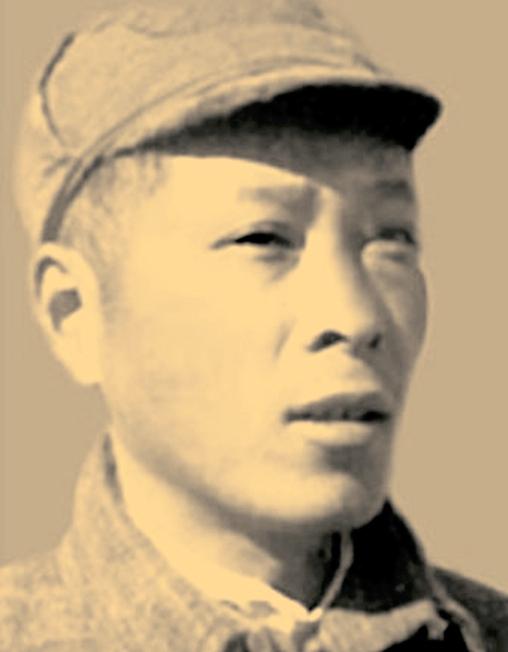
Li Jingquan
Li Jingquan (1909-1989). Zodiac Sign: Chicken. A native of Linchuan County, Jiangxi Province.
In 1926, he participated in the student movement while studying at the Third Normal School of Jiangxi Province, and joined the Communist Youth League of China in the spring of 1927.
In August 1927, he led hundreds of workers' pickets and peasant Red Guards to join the nanchang uprising.
After the rebel army fought in Sanheba, Guangdong, he stayed in Tai Po, Fengshun and Meixian to do local work and served as the secretary of the Jinjinpu District Committee of Fengshun County of the Communist Youth League and the secretary general of the Dongjiang Special Committee of the Communist Youth League.
In 1930, he was sent by the Dongjiang Special Committee of the Communist Party of China to deliver a letter to the former committee of the Red 4th Army, and became a member of the Communist Party of China in the same year. Successively served as the secretary of the Office of the Political Commissar of the Red Army and the secretary of the branch of the direct subordinate unit of the headquarters, the political commissar of the 35th Army of Gannan (commanders Deng Yigang and Liu Tiechao), the political commissar of the independent 3rd Division of the Red 5th Army (division commander Li Xueming), the political commissar of the Independent 3rd Division of the Jiangxi Military Region (commanders Liu Tiechao and Xiao Ke), the political commissar of the Gannan Red 21st Army (commanders Liu Yuxi and Xun Huaizhou), and the director of the political department of the 4th Division of the Red 3rd Army (division commanders Zhang Xilong and Hong Chao, political commissars Peng Xuefeng and Huang Kecheng). The political commissar of the Guerrilla Corps of the Red 9th Army (Commander Wang Shoudao) participated in the anti-"encirclement and suppression" and long marches of the Red Army in the Central Soviet Region.
In June 1935, after the confluence of the Red First and Fourth Fronts, he accompanied the Left Route Army and served as the head of the political section at the Red Army University.
After the Red Fourth Front joined the Red 2nd and 6th Armies in June 1936, he served as the political commissar of the 4th Division of the 2nd Army of the Red Second Front (division commander Lu Dongsheng); he successively participated in the Long March of the Three Fronts of the Red Army and crossed the snowy mountains and meadows three times.
During the National War of Resistance Against Japanese Aggression, he successively served as deputy brigade commander of the 358th Brigade of the 120th Division of the Eighth Route Army (brigade commanders Lu Dongsheng and Zhang Zongxun), political commissar, commander of the Daqingshan detachment of the 120th Division (political commissar missing, chief of staff Yao Zhe), political commissar of the 358th Brigade and 3rd Military Subdistrict of the Northwest Jinbei Military Region (commander Zhang Zongxun), cadet of the Yan'an Central Party School, director of the Organization Department of the Jinsui Branch of the CPC Central Committee (Secretary Guan Xiangying), secretary general of the Shaanxi-Gansu-Ningxia Jinsui Joint Defense Forces Headquarters (chief of staff Xu Xiangqian), Political Commissar of the General School of the Anti-Japanese Military and Political University (President Xu Xiangqian), Political Commissar of the 358th Brigade and Secretary of the Suide Prefectural Committee of the Communist Party of China.
After the victory of the War of Resistance Against Japanese Aggression, he successively served as the secretary of the Jinsui Branch of the CPC Central Committee and the political commissar of the Jinsui Military Region and the Jinsui Field Army (commander He Long), and the political commissar of the 3rd Corps of the North China Military Region (commander Yang Chengwu).
In February 1949, he was appointed as the first political commissar (commander Yang Chengwu) of the 20th Corps of the Chinese People's Liberation Army.
Li Jingquan accompanied Mao Zedong on a visit to the peasant households
After the founding of New China, he successively served as political commissar of the People's Liberation Army's Southward Detachment into Sichuan, member of the Standing Committee and Third Deputy Secretary of the Southwest Bureau of the CPC Central Committee (1950), first secretary of the Cpc West Sichuan District Committee and political commissar of the West Sichuan Military Region, director of the West Sichuan Bureau, deputy political commissar of the Second Field Army and Southwest Military Region and member of the Southwest Military And Political and Administrative Committee, first secretary of the Sichuan Provincial Committee of the Communist Party of China (1952-1965) and chairman of the Sichuan Provincial People's Government (1952-1955), first political commissar of the Sichuan Military Region (1952-1955), Political Commissar of Chengdu Military Region (1955-1967) and First Secretary of the Party Committee of the Military Region, Chairman of the Sichuan Provincial Committee of the Chinese People's Political Consultative Conference (1952-1965), First Secretary of the Southwest Bureau of the CPC Central Committee (1960), Chairman of the Southwest "Third Line" Construction Committee and Chairman of the Southwest Coordination Committee (1965), Vice Chairman of the Standing Committee of the Third, Fourth and Fifth National People's Congresses.
He is a deputy to the Seventh and Twelfth National Congresses of the Communist Party of China, a member of the Eighth Central Committee, a member of the Politburo (Fifth Plenary Session), a member of the Tenth and Eleventh Central Committees, and a member of the Standing Committee of the First Central Advisory Committee.
He was elected as a member of the Second and Third National Committee of the Chinese People's Political Consultative Conference.
Li Jingquan Memorial Series